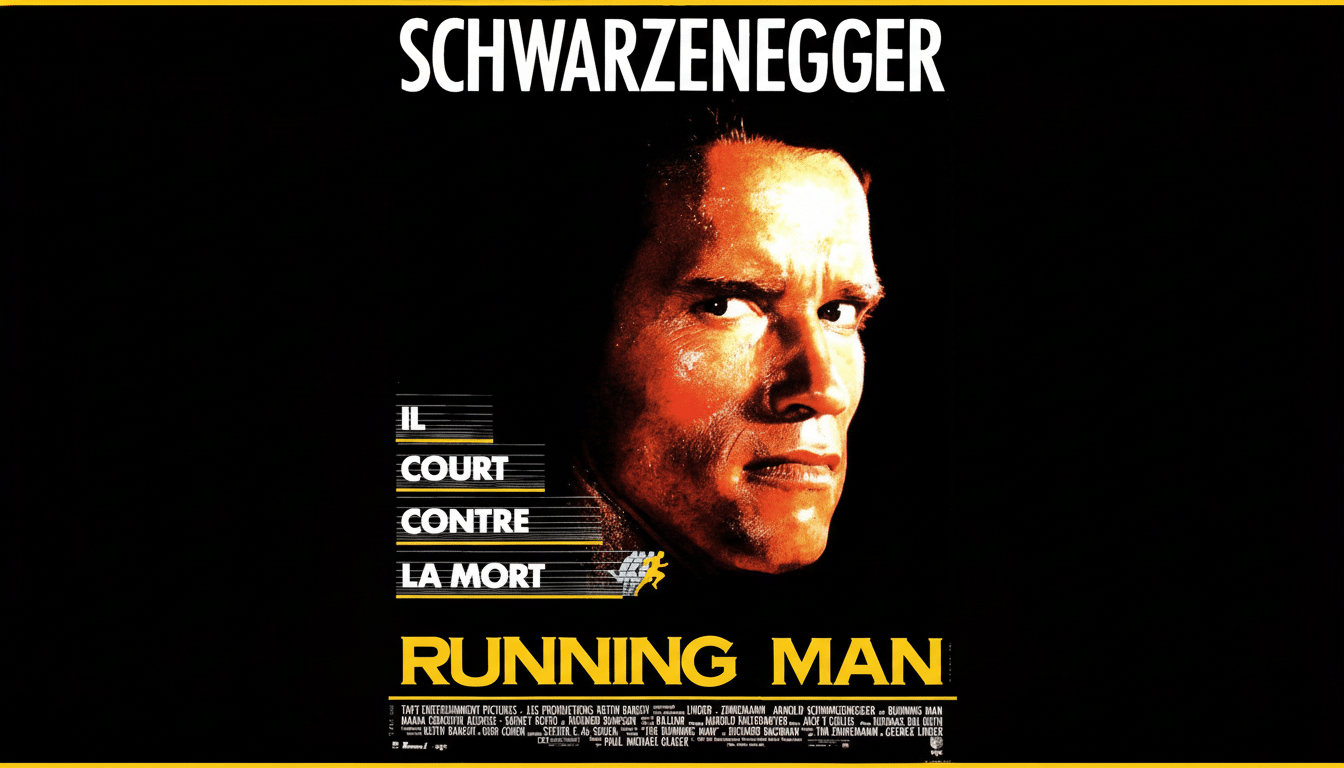Edgar Wright’s take on The Running Man is itchy, smooth and sometimes very funny — but in the end just sands away all of the hard edges that made Stephen King’s book such a scathing critique of media and power.
Glen Powell supplies kinetic star wattage, the set pieces pop and the satire zeroes in on reality-TV excess. But the film just keeps short-circuiting itself — with its jokey digressions, and its soft-pedaled violence — until a roller-coaster ride feels strangely hollow.

What Works and What Doesn’t in Wright’s Adaptation
Wright and his co-writer Michael Bacall hew more closely to King’s 1982 book (writing under the name Richard Bachman) than to the 1987 Arnold Schwarzenegger film that is its adaptation. Powell’s Ben Richards isn’t a musclebound demigod; he’s a blue-collar rebel driven to The Network’s deadly game show in order to keep his family from starving. That ordinary-dude framing serves Powell’s athletic but accessible physique well, and it shrewdly resets expectations for a story long overshadowed by the ’87 film’s trashy-campy splash.
The problem is tone. The film offers punchlines where the material cries out for pressure. Plus, visual gags, cheeky promotions, and flirty nudity in the chase puncture dread just as the cat-and-mouse should tighten. Satire can ride alongside brutality — think “Sorry to Bother You,” or “The Lobster” — but here the humor too often deadens the blow, dulling our sense of how a system that monetizes suffering works.
A Faithful Plot With Blunted Teeth and Impact
For a tale of spectacle murder, the R-rated carnage is strangely choosy. The anonymous “runners” and faceless goons are fed to the grinder, but scenes involving key characters tend to cut away or dilute the impact. The result isn’t a moral position so much as a tonal hedge: the film seeks the rush of carnage without the full burden of consequence. And that trade-off robs big scenes of the sickened awe such a premise should demand.
Politically, the script winks at economic precarity and media manipulation — territory that King raged against — but darts past tougher truths. The world-building creates a society of America divided by class and enthralled by bloodsport, only to sidestep many messier intersections in that vision itself, rendering its criticism neat where maybe it should be more uncomfortably tangled. The effect is less scalding social satire — à la movies like Parasite or Triangle of Sadness — than crowd-pleasing provocation.

Powell’s Charm Versus King’s Fury in The Running Man
Powell has movie-star brashness to burn and he sells the sprinting, scrambling desperation. But the script just keeps pushing him toward breezy charisma. That glow makes the (anti-)hero sympathetic, but it also softens the novel’s core — that of a man radicalized by participation in a system specifically designed to grind him down. It’s not that a matinee idol cannot convincingly play impoverished; it’s just that the movie seldom allows grime, guilt or hunger to rest on his features.
The backup is typically better than the material. Josh Brolin’s Dan Killian is a reptilian showman of corporate cruelty; Colman Domingo transforms the broadcast’s host into a spectacle maestro, part velvet and part razor; Lee Pace deposits streamlined, stalking menace as the celebrity hunter; Michael Cera locates tender conviction in a small rebel role before shifting gears into Wright’s cartoon chaos. In limited screen time, Katy O’Brian explodes in every scene — a potent reminder that this world’s best avatar may not be its headliner.
Style Over Substance Metrics in Wright’s Sleek Spectacle
On the level of craft, Wright remains Wright: propulsive camera moves, crisp action geography, snap-fast transitions and music cues that grease the skids for momentum. The production design gleams, and the TV-show-within-the-film appears convincingly engineered to addict. You can tell where a rumored $100 million budget went. But the satire just keeps landing on the surface, without depth. Brand and advertising cameos are more a source of chuckles than critique; the show’s lethality feels like a theme-park ride rather than creeping horror.
It’s inevitable to measure this against the 1987 film, which departed from much of the novel to create a gaudy, for-the-ages cartoon that was ideally suited to Schwarzenegger. That movie wasn’t subtle, but it grew into a cult object and an uncanny prophecy of reality TV. Wright is caught in the middle — between a Bourne-again plot, 21st-century cynicism and pop zing — and the result is a split decision that never quite congeals.
Verdict: A Slick Ride That Softens The Running Man’s Bite
The Running Man runs hard, but won’t shed real blood. It is slickly mounted and often electric, driven by a magnetic lead performance and a murderers’ row of character actors. Even so, the movie pulls its punches — softening violence and padding politics, catering to the cheap seats when the subject matter screams for a body blow. As a Saturday-night spectacle, it goes down just fine. As a true fall-to-your-doom King adaptation, it nearly makes the finish line.

